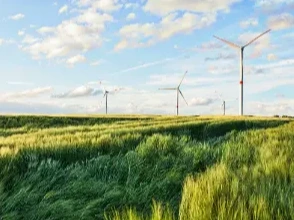Summary
Environmental science emerged from the fields of natural history and medicine during the Enlightenment. Today, it provides an integrated, quantitative, and interdisciplinary approach to the study of environmental systems. Environmental studies are incorporating more of the social sciences in order to understand human relationships, perceptions and policies towards the environment. This entry collection features information about design and technology for improving environmental quality in every aspect.
Entries
Topic Review
- 2.1K
- 18 Jul 2022
Topic Review
- 5.3K
- 18 Jul 2022
Topic Review
- 5.9K
- 15 Jul 2022
Topic Review
- 1.8K
- 15 Jul 2022
Topic Review
- 860
- 14 Jul 2022
Topic Review
- 1.2K
- 13 Jul 2022
Topic Review
- 3.3K
- 14 Jul 2022
Topic Review
- 968
- 12 Jul 2022
Topic Review
- 1.3K
- 12 Jul 2022
Topic Review
- 863
- 11 Jul 2022

